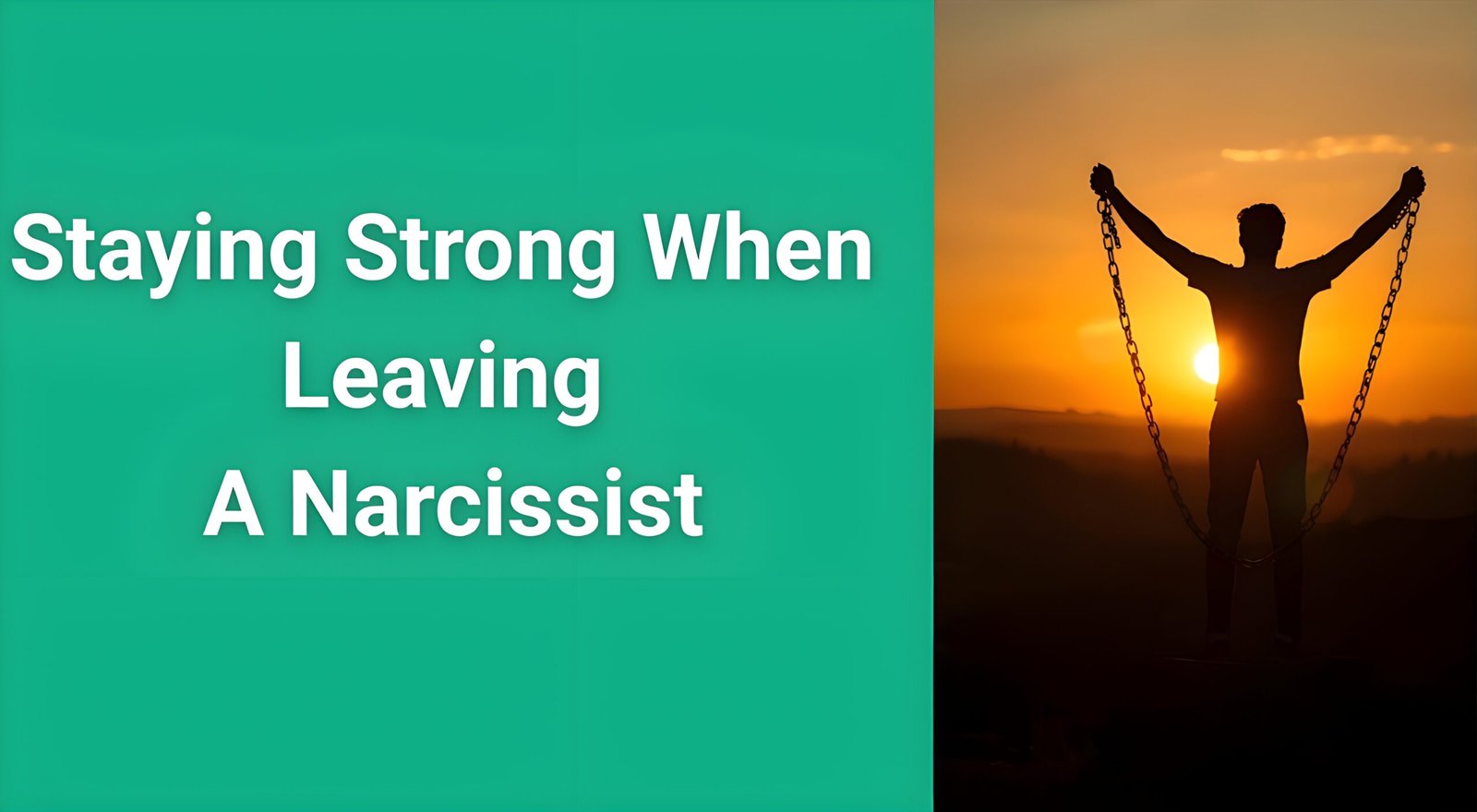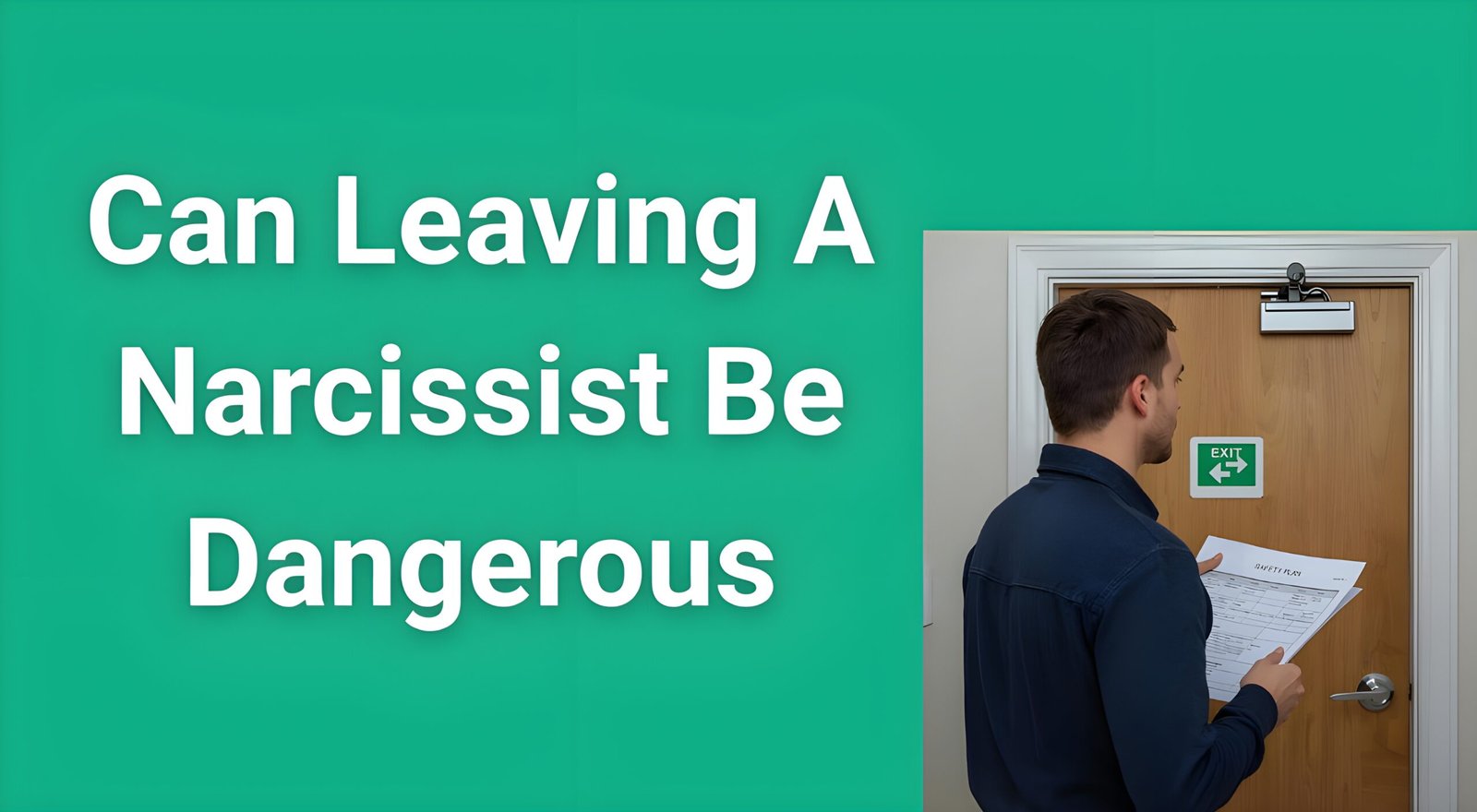The moment you realize you need to escape, leaving a narcissist partner becomes both the most terrifying and most necessary decision of your life. Unlike ending a normal relationship, breaking free from narcissistic abuse requires careful planning, unwavering determination, and a deep understanding of what you’re truly up against.
- Understanding Why Leaving a Narcissist Partner Feels Impossible
- Recognizing the Signs: Are You Ready to Leave?
- The Complete Safety Plan: 12 Essential Steps for Leaving a Narcissist Partner
- What to Expect After Leaving: The Emotional Roller Coaster
- Rebuilding Your Life: From Survival to Thriving
- Frequently Asked Questions About Leaving a Narcissist Partner
- Final Thoughts: Your Journey to Freedom
You’re not weak for staying this long. You’re not crazy for feeling confused. And you’re certainly not alone in wondering if leaving a narcissist partner is even possible. The manipulation, gaslighting, and emotional warfare have been designed specifically to make you question your own reality and doubt your ability to survive without them.
This comprehensive guide will walk you through every aspect of safely leaving a narcissist partner, from the initial recognition phase to building your new life. By understanding their tactics, preparing strategically, and protecting yourself throughout the process, you can break free permanently and reclaim the life you deserve.
Understanding Why Leaving a Narcissist Partner Feels Impossible
The Psychological Prison They’ve Built
When you’re trapped in a relationship with a narcissistic partner, leaving feels impossible because they’ve systematically dismantled your sense of self. Through years of subtle manipulation, they’ve convinced you that you’re nothing without them, that no one else could ever love you, and that you’re the real problem in the relationship.
This isn’t love—it’s psychological control. Narcissists create what researchers call “trauma bonding,” a powerful attachment that forms when someone alternates between abuse and affection. Your brain literally becomes addicted to the cycle of punishment and reward, making the thought of leaving feel like you’re abandoning a vital part of yourself.
The Financial and Social Isolation
Most people considering leaving a narcissist partner discover they’ve been systematically isolated from friends, family, and financial independence. This isolation isn’t accidental—it’s a calculated strategy to ensure you feel too helpless to leave.
They may have:
- Discouraged relationships with family and friends
- Controlled access to money or prevented you from working
- Made you financially dependent through manipulation
- Convinced others that you’re “unstable” or “difficult”
- Monitored your communications and activities
The Fear of Their Retaliation
Perhaps the most paralyzing aspect of leaving a narcissist partner is knowing how they react to losing control. You’ve seen their explosive anger, their vindictive behavior, and their ability to turn others against you. The thought of triggering their full wrath feels unbearable.
This fear is valid. Research shows that the most dangerous time for abuse victims is when they leave or attempt to leave. Understanding this danger is the first step in protecting yourself throughout the process.
Recognizing the Signs: Are You Ready to Leave?
The Awakening Moment
For most people, leaving a narcissist partner begins with a single moment of clarity. Maybe they crossed a line they’d never crossed before, or you caught them in a lie so obvious that their gaslighting couldn’t explain it away. Perhaps you saw how they treated your children or realized the extent of their manipulation.
These awakening moments are precious gifts. They cut through years of confusion and show you the truth of your situation. If you’re reading this, you’ve likely had yours.
The Emotional and Physical Toll
Living with a narcissistic partner takes an enormous toll on your health. You might be experiencing:
Physical symptoms:
- Chronic fatigue and insomnia
- Digestive issues and headaches
- High blood pressure and anxiety attacks
- Frequent illnesses due to stress
Emotional symptoms:
- Constant anxiety and hypervigilance
- Depression and feelings of hopelessness
- Loss of identity and self-worth
- Inability to make simple decisions
Behavioral changes:
- Walking on eggshells constantly
- Apologizing for things that aren’t your fault
- Avoiding friends and family
- Questioning your own memories and perceptions
The Impact on Your Children
If you have children, you’re likely agonizing over how leaving a narcissist partner will affect them. The truth is, children are already being affected by living in an environment of emotional abuse, manipulation, and tension.
Children in narcissistic households often develop:
- Anxiety and behavioral problems
- Difficulty forming healthy relationships
- Perfectionist tendencies or rebellious behavior
- Confusion about normal relationship dynamics
Leaving doesn’t guarantee an easy path, especially if custody battles lie ahead, but it does offer hope for breaking the cycle and showing your children what healthy boundaries look like.
The Complete Safety Plan: 12 Essential Steps for Leaving a Narcissist Partner
Step 1: Accept the Reality (And Stop Hoping They’ll Change)
The hardest part of leaving a narcissist partner is accepting that they will never become the person you hoped they could be. This isn’t about giving up on them—it’s about accepting reality and choosing to save yourself.
Narcissistic personality patterns are deeply ingrained and rarely change, even with therapy. The charming, loving person you fell for was likely a carefully crafted persona designed to secure your attachment. The real person is the one who emerges behind closed doors.
Step 2: Keep Your Plans Absolutely Secret
This cannot be emphasized enough: you must keep your plans to leave completely secret from your narcissistic partner. Do not hint at your intentions, discuss your concerns, or give ultimatums. These conversations will only give them more ammunition to manipulate you and more time to sabotage your efforts.
12-step method to leave narcissistic husband safely and rebuild life.
Create a safety communication plan:
- Set up a private email account they don’t know about
- Get a separate phone or phone number if possible
- Use a friend’s address for important mail
- Clear your browser history after researching resources
Remember, secrecy in this situation isn’t deception—it’s survival. They’ve created an environment where honesty isn’t safe.
Step 3: Build Your Support Network Carefully
Leaving a narcissist partner requires a strong support system, but you must choose your allies carefully. Narcissists are often skilled at charming others and portraying themselves as victims, so some people in your life may not believe your experience.
Identify your true allies:
- People who have witnessed concerning behavior
- Those who have expressed worry about your well-being
- Professional support people (therapists, clergy, counselors)
- Domestic violence advocates who understand narcissistic abuse
Avoid sharing with:
- Mutual friends who might relay information
- Family members who have been charmed by your partner
- Anyone who has a history of not maintaining confidentiality
Sometimes people need professional help to understand what they’re truly dealing with. A comprehensive analysis from someone who specializes in narcissistic abuse can provide the clarity and validation needed to move forward with confidence.
Step 4: Document Everything
Creating a detailed record of abusive behaviors serves multiple purposes: it helps you maintain perspective when they gaslight you, provides evidence if legal action becomes necessary, and reminds you why leaving is essential when doubts creep in. Leave without them realizing your plan.
What to document:
- Abusive incidents with dates and details
- Threatening messages or voicemails
- Financial abuse or controlling behaviors
- Witnesses to concerning behavior
- Photos of any physical evidence
How to document safely:
- Use a private email account to send yourself records
- Store documents with a trusted friend
- Use cloud storage they can’t access
- Keep a journal hidden outside your home
Step 5: Secure Your Finances
Financial abuse is a common tool narcissists use to maintain control. Even if you’ve never considered yourself financially dependent, you may discover they’ve been manipulating your access to resources more than you realized.
Financial safety steps:
- Open a bank account in your name only
- Save money in small amounts they won’t notice
- Get copies of all financial documents
- Research your rights regarding joint assets
- Understand your state’s laws about marital property
If you feel overwhelmed by the financial aspects of leaving, remember that temporary hardship is preferable to permanent prison. There are resources available to help you rebuild.
Step 6: Prepare Your Legal Strategy
Even if you’re not married, leaving a narcissist partner often involves legal considerations, especially if you have children together or shared property. Consulting with an attorney who understands narcissistic abuse can help you understand your rights and prepare for potential challenges.
Legal considerations:
- Custody arrangements and parental rights
- Property division and financial obligations
- Protective orders or restraining orders
- Documentation needs for court proceedings
Many attorneys offer free consultations, and legal aid societies provide services for those who can’t afford private counsel.
Step 7: Create Your Physical Safety Plan
The period around leaving is statistically the most dangerous time in an abusive relationship. Your safety plan must account for the possibility that your partner will escalate their behavior when they realize they’re losing control.
Safety planning essentials:
- Identify safe places to go at any time of day
- Have a bag packed with essentials stored safely
- Know multiple routes away from your home
- Have emergency contacts programmed in your phone
- Consider changing your routine to be less predictable
What to pack in your emergency bag:
- Important documents (ID, insurance papers, legal documents)
- Medications for you and your children
- Cash and credit cards they can’t access
- Change of clothes and basic toiletries
- Phone chargers and any necessary electronics
- Copies of keys
Step 8: Plan Your Exit Conversation
When the time comes to tell your narcissistic partner you’re leaving, the conversation should be brief, clear, and non-negotiable. Do not allow it to become a debate about your relationship or their behavior.
Key principles:
- Keep it short and factual
- Don’t justify or explain in detail
- Don’t engage with manipulation tactics
- Have your exit ready before the conversation
- Consider having a support person present
Sample script: “I’ve decided to end our relationship. I’ll be leaving today. I’m not interested in discussing this decision or working things out.”
Expect them to cycle through various manipulation tactics: rage, tears, promises to change, threats, and attempts to make you feel guilty. Stay focused on your decision and don’t engage with these tactics.
Step 9: Execute Your Exit Quickly
Once you’ve told them you’re leaving, get out as quickly as possible. Don’t linger to comfort them, continue the conversation, or give them more opportunities to manipulate you. The longer you stay in their presence after announcing your departure, the more likely they are to say or do something that shakes your resolve.
Exit strategy:
- Have your transportation ready
- Take only essential items initially
- Leave when they’re not home if possible
- Have someone waiting for you at your destination
- Turn off location sharing on all devices
You can arrange to get your remaining belongings later, preferably with police escort or when they’re not present.
Step 10: Prepare for the Extinction Burst
After you leave, expect what psychologists call an “extinction burst”—an intensification of the behaviors you’re trying to escape. When narcissists realize their usual tactics aren’t working, they often escalate dramatically before giving up.
Common extinction burst behaviors:
- Excessive calling, texting, or showing up uninvited
- Love-bombing with gifts, flowers, and promises
- Threats or intimidation tactics
- Attempting to turn others against you
- Dramatic gestures or “emergency” situations
- Stalking or monitoring your activities
Understanding that this escalation is temporary and predictable can help you stay strong during this difficult period.
Step 11: Maintain Absolute No Contact
If you have children together, you’ll need to maintain minimal contact focused strictly on parenting issues. Otherwise, complete no contact is essential for your healing and safety.
No contact rules:
- Block them on all social media platforms
- Change your phone number if necessary
- Don’t respond to messages from unknown numbers
- Block their email addresses
- Avoid places where you’re likely to encounter them
Gray rock method for necessary contact: When contact is unavoidable, become as boring and unresponsive as possible. Give brief, factual responses without emotion or additional information.
The pull to break no contact will be strong, especially during vulnerable moments. This is where many people get trapped back in the cycle. Having a structured approach to breaking free from this psychological addiction can make the difference between temporary escape and permanent freedom.
Step 12: Focus on Your Recovery and Healing
Leaving a narcissist partner is just the beginning of your healing journey. The psychological damage from narcissistic abuse runs deep and requires intentional effort to overcome.
Recovery essentials:
- Find a therapist experienced in narcissistic abuse
- Join support groups for abuse survivors
- Practice self-care and rebuild your identity
- Reconnect with friends and family you’ve been isolated from
- Establish new routines and rediscover your interests
The recovery process isn’t linear. You’ll have good days and bad days, moments of strength and periods of doubt. This is normal and part of healing from psychological trauma.
What to Expect After Leaving: The Emotional Roller Coaster
The Relief and Terror Phase
Immediately after leaving a narcissist partner, you’ll likely experience conflicting emotions. Relief at being away from constant stress and fear, mixed with terror about facing the future alone. Both feelings are valid and normal.
You might question your decision, romanticize the good times, or feel overwhelming loneliness. These feelings don’t mean you made the wrong choice—they’re part of your brain adjusting to freedom after being controlled for so long.Covert husband safety plan and secret strategies.
The Withdrawal Symptoms
Trauma bonding creates a genuine psychological addiction. When you remove yourself from the cycle of abuse and intermittent reinforcement, you may experience withdrawal symptoms similar to those experienced by people recovering from substance abuse.
Common withdrawal symptoms:
- Intense cravings to contact them
- Physical illness and fatigue
- Difficulty concentrating or making decisions
- Emotional numbness alternating with overwhelming feelings
- Sleep disturbances and anxiety
These symptoms are temporary but can be intense. Having strategies to manage them is crucial for staying away permanently.
The Smear Campaign
Almost inevitably, your narcissistic ex-partner will launch what’s known as a smear campaign—an attempt to destroy your reputation and turn others against you. They’ll portray themselves as the victim and you as unstable, vindictive, or abusive.
Protecting yourself from smear campaigns:
- Document everything they say about you
- Don’t defend yourself to people who readily believe lies
- Focus on the people who truly know and support you
- Consider legal action if the lies become defamatory
Remember that people who quickly believe one-sided stories without seeking your perspective weren’t truly in your corner to begin with. Safe exit when divorce is the only option
Rebuilding Your Life: From Survival to Thriving
Rediscovering Your Identity
After leaving a narcissist partner, you may feel lost about who you are without them. This is because narcissistic abuse systematically destroys your sense of self. Rebuilding your identity is a gradual process that requires patience and self-compassion.
Identity recovery strategies:
- Recall who you were before the relationship
- Explore interests and hobbies you gave up
- Make decisions based on your preferences, not fear
- Practice saying “no” without extensive justification
- Celebrate small victories in asserting yourself
Building Healthy Relationships
After narcissistic abuse, the prospect of trusting someone new can feel impossible. You may find yourself either avoiding relationships entirely or attracting similar types of partners. Learning to recognize healthy relationship patterns is essential for your future happiness.
Healthy relationship characteristics:
- Mutual respect and consideration
- Open, honest communication
- Support for individual growth and interests
- Conflict resolution without manipulation
- Emotional safety and trust
Protecting Your Children
If you have children with your narcissistic ex-partner, protecting them while navigating custody arrangements becomes a primary concern. This often involves complicated legal battles and ongoing exposure to manipulative tactics.
Child protection strategies:
- Document concerning parenting behaviors
- Work with attorneys experienced in high-conflict custody cases
- Consider therapy for your children
- Teach your children about healthy boundaries age-appropriately
- Don’t use them as messengers or emotional support
Frequently Asked Questions About Leaving a Narcissist Partner
Q: What if I don’t have anywhere to go or any money?
A: Many domestic violence shelters accept people fleeing emotional abuse, not just physical violence. Contact your local domestic violence hotline for resources. Legal aid societies can help with divorce proceedings if you can’t afford an attorney. Food banks, churches, and community organizations often provide emergency assistance. Remember, temporary hardship is better than permanent abuse.
Q: How do I know if I’m overreacting or if this is really abuse?
A: If you’re questioning your reality, walking on eggshells, or feeling like you’re going crazy, you’re likely experiencing narcissistic abuse. Trust your instincts. The fact that you’re questioning whether it’s “bad enough” often indicates it’s worse than you want to admit. Consider getting a professional assessment to help clarify what you’re experiencing.
Q: What if they threaten to hurt themselves if I leave?
A: Threats of self-harm are a manipulation tactic designed to control you through guilt and fear. You are not responsible for another adult’s mental health or safety. If they threaten suicide, call emergency services immediately. Don’t let the threat of their self-harm keep you trapped in an abusive situation.
Q: How do I explain this to my children?
A: Age-appropriate honesty is usually best. Young children might be told, “Mommy and Daddy need to live apart because we weren’t treating each other kindly.” Older children can understand more about unhealthy relationships. Focus on reassuring them that they are loved and that the problems between adults aren’t their fault.
Q: What if I’ve left before and gone back? Can I really do it this time?
A: The average person leaves an abusive relationship seven times before leaving permanently. Previous attempts aren’t failures—they’re practice runs. Each time you leave, you gather more information about what works and what doesn’t. The fact that you’re seeking information shows you’re getting stronger and more prepared.
Q: How long does it take to recover from narcissistic abuse?
A: Recovery is highly individual and depends on factors like the length and severity of the abuse, your support system, and whether you engage in therapy or other healing practices. Many people report feeling significantly better within the first year, but deeper healing often takes longer. Be patient with yourself and focus on progress, not perfection.
Final Thoughts: Your Journey to Freedom
Leaving a narcissist partner requires extraordinary courage, careful planning, and unwavering commitment to your own well-being. The journey from recognizing the abuse to building a new life is challenging, but thousands of people successfully break free every year.
Remember that healing isn’t just about removing yourself from harm—it’s about understanding why you were vulnerable to this type of relationship and building the skills to protect yourself in the future. This understanding helps ensure you never find yourself in a similar situation again.
You deserve to live free from fear, manipulation, and emotional abuse. You deserve relationships built on mutual respect, genuine love, and healthy communication. Most importantly, you deserve to rediscover who you are when you’re not constantly managing someone else’s emotions or walking on eggshells.
The path to freedom isn’t easy, but it’s absolutely possible. Every day you stay strong, every boundary you maintain, and every step you take toward healing is a victory. Your future self is counting on the courage you show today.
Take it one day at a time, celebrate small victories, and never forget that leaving isn’t just about escaping something terrible—it’s about moving toward something beautiful. Your life of peace, authenticity, and genuine happiness is waiting for you on the other side of fear.
You are stronger than you know, braver than you feel, and more deserving of love and respect than your abuser ever let you believe. Your journey to freedom starts with a single step. Take that step today.






